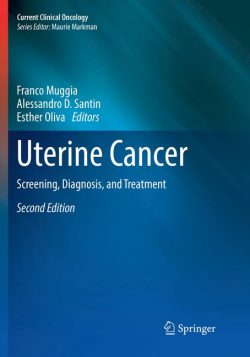This work is devoted to understanding the recent advances in nuclear medicine and molecular imaging technologies along with their application to integrated medical therapy and future drug development. This anthology is based on the international symposium in 2015 entitled “Perspective on Nuclear Medicine for Molecular Diagnosis and Integrated Therapy. “The symposium provided an opportunity to exchange ideas on how to promote nuclear medicine technology and how to extend the technology to medical therapy and drug development, and was also a good opportunity to discuss the future perspective of nuclear medicine and molecular imaging by worldwide leaders in the field. Molecular imaging technologies have been rapidly developed worldwide in recent years. Among those developments, nuclear medicine has come to play an important role in quantitative analysis of biological process in vivo as well as in wide clinical use. With the current progress of nuclear medicine and molecular imaging, this modality has been applied for treatment monitoring and predicting its outcome with the use of optimal imaging biomarkers and suitable quantitative analysis. Truly, a new era has arrived with clinical use of nuclear medicine and molecular imaging for personalized medicine.
This volume will benefit a wide variety of researchers in life science including those working in drug development, molecular imaging, and medical therapy as well as physicians who utilize diagnostic imaging.
“The book is very stimulating because the chapters are based on lectures by internationally recognized experts making it different and original with respect to books not written as proceedings. The book provides information and hypotheses not easily found elsewhere, that are critically evaluated and enriched through interactive discussions with the participants. The text is a valuable, simple but detailed update for all professionals interested in the field.” (Luigi Mansi, European Journal of Nuclear Medicine and Molecular Imaging, Vol. 45, 2018)
Dr. Yuji Kuge, Professor, Central Institute of Isotope Science and Graduate School of Medicine, Hokkaido University Dr. Tohru Shiga, Associate Professor, Department of Nuclear Medicine, Graduate School of Medicine, Hokkaido University Dr. Nagara Tamaki, Professor, Department of Nuclear Medicine, Graduate School of Medicine, Hokkaido University
This work is devoted to understanding the recent advances in nuclear medicine and molecular imaging technologies along with their application to integrated medical therapy and future drug development. This anthology is based on the international symposium in 2015 entitled “Perspective on Nuclear Medicine for Molecular Diagnosis and Integrated Therapy. “The symposium provided an opportunity to exchange ideas on how to promote nuclear medicine technology and how to extend the technology to medical therapy and drug development, and was also a good opportunity to discuss the future perspective of nuclear medicine and molecular imaging by worldwide leaders in the field. Molecular imaging technologies have been rapidly developed worldwide in recent years. Among those developments, nuclear medicine has come to play an important role in quantitative analysis of biological process in vivo as well as in wide clinical use. With the current progress of nuclear medicine and molecular imaging, this modality has been applied for treatment monitoring and predicting its outcome with the use of optimal imaging biomarkers and suitable quantitative analysis. Truly, a new era has arrived with clinical use of nuclear medicine and molecular imaging for personalized medicine.
This volume will benefit a wide variety of researchers in life science including those working in drug development, molecular imaging, and medical therapy as well as physicians who utilize diagnostic imaging.
Elucidates the recent advances in nuclear medicine and molecular imaging technologies
Broadens readers’ understanding of the application of nuclear medicine and molecular imaging
Offers many insights into integrated medical therapy and future drug development





